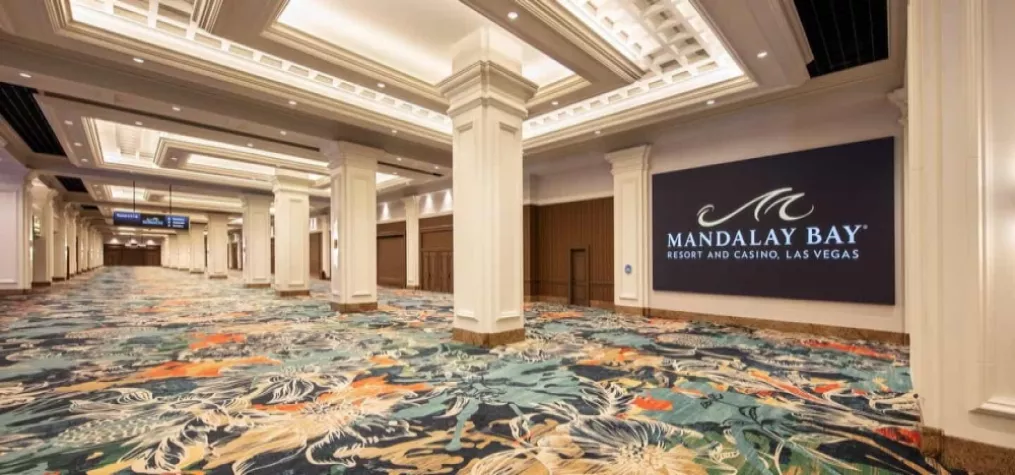Ronnie Higgins

As Content Marketing Manager at Eventbrite, Ronnie Higgins helps event planners level-up their registration game, whether for a conference, a class or a citywide party.

When companies sponsor events, they don't just want their names on a banner; they want partnerships worth their real value and more: more audiences, more attendees and more brand awareness.
Event professionals want to deliver that value to sponsors but they don’t always know how. Fortunately, the numbers indicate they’ll have plenty of chances to learn.
What Sponsors Want, a recent report from ESP Properties, found that sponsorship spending will grow faster over the next few years than spending on public relations, direct marketing and promotions globally and those forms of marketing plus advertising in North America. The same report discovered that 75 percent of sponsors are considering new partnerships this year, up 5 percentage points from 2016.
Despite the opportunities, more than half of marketers have no standardized processes to quantify the value of their event sponsorship offering. Event professionals who can provide sponsors with tangible, measurable value will quickly differentiate themselves from the competition and spark long-term partnerships.
Make Everyone a Winner
According to a recent survey, event professionals deemed securing and defining sponsorships their greatest challenges, with other sponsorship-related challenges – including evaluating ROI – not far behind. Organizers don’t have to struggle with sponsorships. By following these strategies, event professionals can provide sponsors with measurable value.
Sponsors don’t want to hear about how your event attracts a B2B audience, they want you to demonstrate a deeper understanding of your audience.
Free web analytic tools and database solutions are only the beginning. Don’t stop at gender and job function when analyzing your event attendees: How many people do attendees manage? What types of companies do they work for and how large are those companies? What are their greatest challenges and what are their budgets? What makes your attendees different – and more valuable – than attendees of other events?
The more you learn about your attendees, the more tailored your sponsorship pitches can be. That personalized approach can be the difference between a token sponsorship deal and an enthusiastic, lasting partnership.
Assets include everything from banners to speaking opportunities to exclusive networking events. If you know who your attendees are, you can easily determine what they want – and by extension, what sponsors want.
Collect feedback from attendees and sponsors after every event. Young professionals might crave more networking mixers, while gatherings for high-level executives might need a more "VIP" experience.
Brainstorm a list of your most valuable assets, and take cues from successful competitors when necessary. With that in place, put a price tag on each asset, making sure the most expensive ones bring the most value to sponsors. If sponsors see your prices as lower than the value they stand to gain from sponsorship, they’ll buy.
Don’t go in blind when valuing your assets. Sponsors know exactly how much return on investment they receive from an email campaign and should expect the same information from you. Consult your historical data and reference competitors’ results to demonstrate the value of investing in your event.
Bronze, Gold, Mega-Deluxe-Platinum and other standard packages should be starting points, not firm packages.
Sponsors don’t want to pay for assets they don’t see as valuable. Rather than shoehorn everyone into arbitrary spending tiers that artificially lower your own revenue, provide à la carte options so sponsors can design packages that fit their needs.
Separate assets by type (branding, experiential, samples, etc.) so sponsors can focus more on the areas they prefer. This is where your asset valuations come into play, helping sponsors understand the differences in impact from one product to another.
After you define the audience, hammer out the assets, provide custom deals and come through on your promise to deliver value. If you do that, sponsors will come back for multiple years; fail and you’ll struggle to generate revenue next time.
Reach out to each sponsor after the event to hear about their experiences. What worked, what didn’t and what changes would they want to see next year? This is a great time to discuss data from the conference, prove the ROI of sponsorship and encourage sign-ups for multiyear contracts.
Sponsors aren’t complicated. They want high-return investments with dependable partners. Follow these steps to give them more of what they want and max out your sponsorship slots year after year.

Add new comment